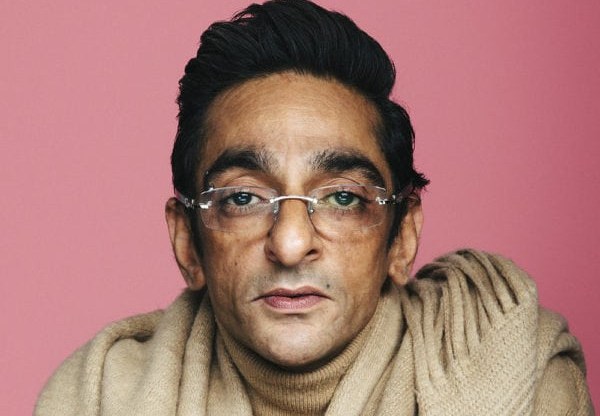Pioneering LGBT+ rights activist Qasim Iqbal candidly reflects on the ‘conflict’ of being a queer Muslim in Pakistan

Qasim Iqbal (Queer Commonwealth: The Faces of the LGBT Movement/Eivind Hansen). Photo series commissioned by the Kaleidoscope Trust.
LGBT+ rights activist Qasim Iqbal says that there is a “conflict” between sexuality and religion in Pakistan.
Islam is “very important” in Pakistani culture, Iqbal says, and it generally takes precedence over any advancements in LGBT+ rights.
Iqbal will be discussing these and other issues on June 4 during a panel discussion as part of PinkNews‘ Pride for All, a four day digital extravaganza.
Fighting for our Rights in the Time of Coronavirus – with the Kaleidoscope Trust will be streamed live on Twitter at 1pm BST on June 1.
Gay sex is illegal in Pakistan – under state law, a person can be imprisoned for having sex with a person of the same gender.
Meanwhile, under Sharia law – or Islamic law – a person found to have had sex outside of marriage can be stoned to death, or face a public lashing.
These punishments are not strictly enforced, but they contribute to a chilling effect for LGBT+ Pakistanis, many of whom live their lives in fear and secrecy.
LGBT+ people in Pakistan can only be themselves when they’re surrounded by other queer people.
“When you’re at home you have to be a good little Muslim son, a brother, and then when you’re out with your straight friends or work buddies, you have to still remain the same,” Iqbal tells PinkNews ahead of his Pride for All panel discussion.
“Only when you’re with your friends can you really be yourself.”
Families can cause “so much trouble” for LGBT+ people in Pakistan – particularly for lesbian women, according to Iqbal.
If a girl brings shame to their family there’s a possibility that her brothers or her father may kill her.
“I’ve had many cases where they imprisoned the girl in the house, locked them up, no access to the outside world, no phone, no computer, nothing.
“If a girl brings shame to their family there’s a possibility that her brothers or her father may kill her.
Activist Qasim Iqbal explains the everyday realities for LGBT+ people in Pakistan. ?️?
Donate to our #PrideForAll fundraiser: https://t.co/2GpYsUKdoh pic.twitter.com/roq734F47b
— PinkNews (@PinkNews) June 4, 2020
“The majority of Pakistanis don’t even even acknowledge the existence of lesbians, because accepting that lesbians exist would mean accepting the fact that women are also sexual beings, and that just can’t be – not in the Muslim world.”
Qasim Iqbal doesn’t think the country will see any major advancement in LGBT+ rights during his lifetime.
Gay men in Pakistan can meet more freely than lesbian women, but that doesn’t mean they’re exempt from danger.
“Discrimination in Pakistan would be people making fun of feminised boys or even the police arresting feminised boys walking down the street, minding their own business,” Iqbal says.
“I think the police needs to be told that it is not against the law to be gay in Pakistan – gay sex is against the law.”
The situation for trans people in Pakistan is precarious – many face significant violence and discrimination – but that improved slightly with the passing of the Transgender Persons (Protection of Rights) Act in 2018.
“I don’t see LGBT+ rights in Pakistan, at least during my lifetime, because the Islamic lobby there is so, so strong,” Iqbal says.

